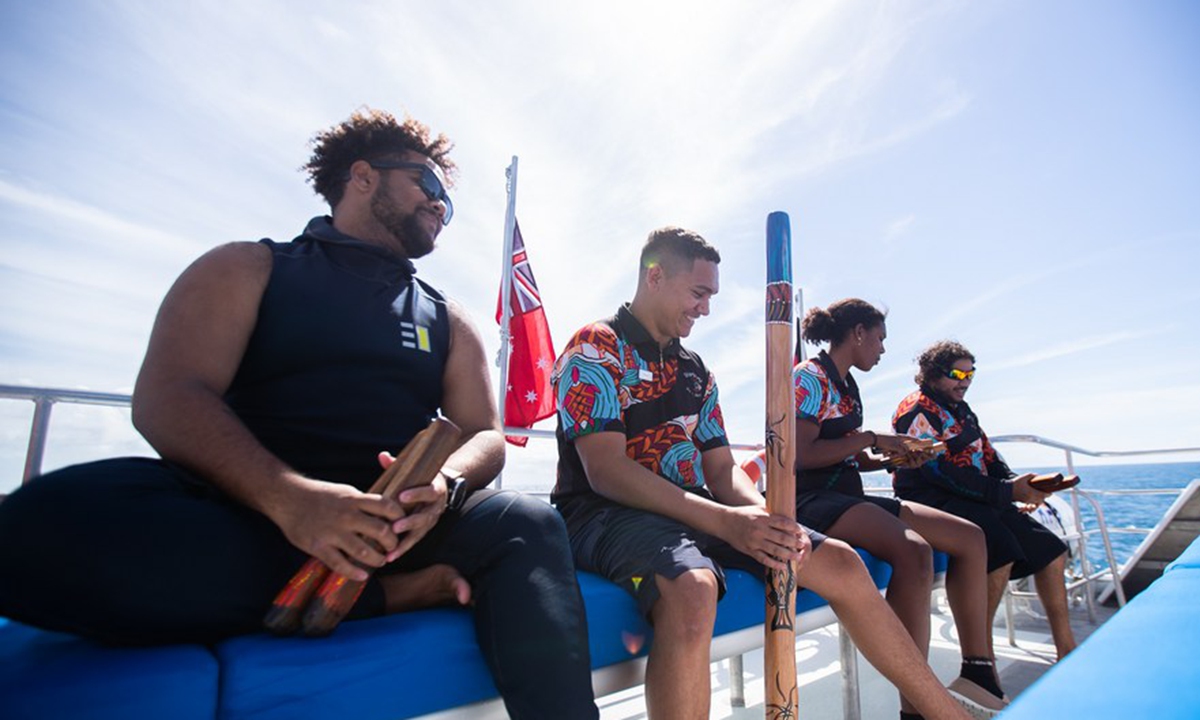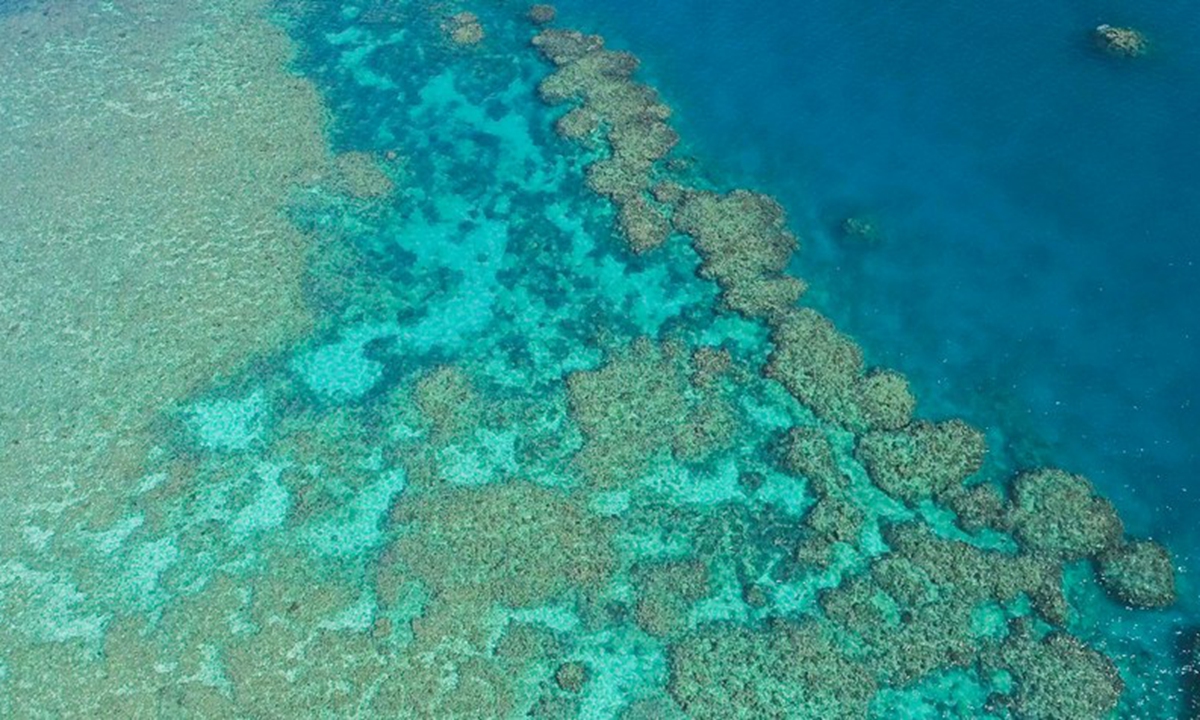Aussie conservation group guards dwindling Great Barrier Reef with "citizen scientists"

Photo taken on June 2, 2021 shows Brian Connolly (2nd L) aboriginal coral reef persevere volunteer cruising Great Barrier Reef in Queensland, Australia. (Photo by Hu Jingchen/Xinhua)
Andy Ridley, the energetic chief executive of Citizens of the Great Barrier Reef, believes he has the best workplace of this planet.
The Great Barrier Reef, the world's largest coral reef in Australia's state of Queensland, is described by Ridley as the "planet's most beautiful marine environment" and is the main conservation target of the charity cooperative organization that runs a series of preserving programs.
To celebrate World Oceans Day (WOD) on Tuesday, Xinhua spoke with Ridley about the organization's diverse range of conservation work.

Photo taken on June 2, 2021 shows the Great Barrier Reef in Queensland, Australia. (Photo by Hu Jingchen/Xinhua)
The group, relying on its volunteer "citizen scientists," has an overall objective to promote international awareness about the need to stop the squandering of resources and to encourage the use of renewable energy sources in order to battle climate change.
The group's conservation efforts are crucial. In recent years the world's largest reef system, which stretches more than 2,300 km along Australia's east coast, has faced an array of climate-based challenges such as rising sea temperatures, ocean acidification and extreme weather events.
The harsher conditions have led to widespread bleaching of coral and the Great Barrier Reef has reportedly lost about half its corals since 1995.
Despite such grim statistics, Ridley remains optimistic that the Great Barrier Reef retains a chance to recover, saying "we've got this small window of opportunity left, where if we deal with climate change, we can protect enough of this reef probably for it to come back and be as glorious as it was."
"Globally, we need to have emissions plummeting, like going down really fast, not in 10 years' time, but like now," he told Xinhua.
Ridley said the reduce of tourists due to the pandemic could have some positive sides for the conservation of the coral reefs.
"Normally all the boats that are around us would be very busy with foreign guests," he said. "That hasn't been the case this year and the remarkable thing about the tourism industry here is they basically put their boats to work doing more and more conservation. So, for all the badness of the pandemic, some good has come out of it."
One of the main conservation projects during this time has been the group's Great Reef Census -- a "motley flotilla" of more than 30 vessels, including tourist boats, fishing vessels and super yachts.
It surveyed about 150 significant reefs throughout the 4,000 individual reefs in the vast ecosystem during a 10-week study.
The group then called on volunteers to don their "citizen scientist coats" to help analyze online some of the 13,000 images brought back from the reef.
"The Great Barrier Reef is so massive, large amounts of it had never been surveyed," Ridley said. "And we still need more reconnaissance information, more data to help us better manage the reef."
Towards that end, Ridley is keen to continue the census and would like to recruit volunteer recreational boating enthusiasts to reach up to 500 reefs.
Whatever the group finds, there is no risk of him ever losing his buoyant attitude towards the beloved region.
World Oceans Day is held every June 8 with the aim of fostering public interest in the protection of the ocean and the sustainable management of its resources, with the theme of 2021 being "The Ocean: Life and Livelihoods."
"I love nature in general, but I really love the Great Barrier Reef," Ridley said. "It's an extraordinary place and I'm incredibly lucky to be working here."
